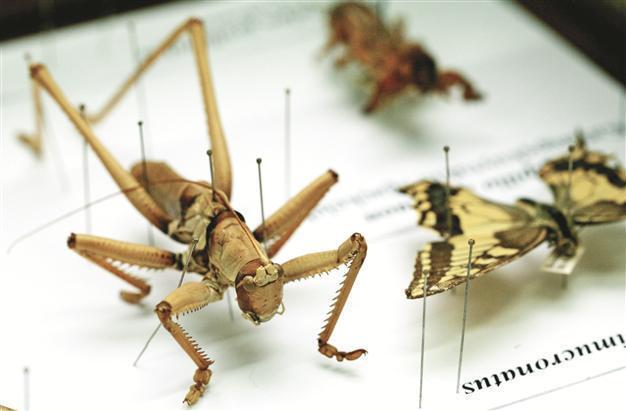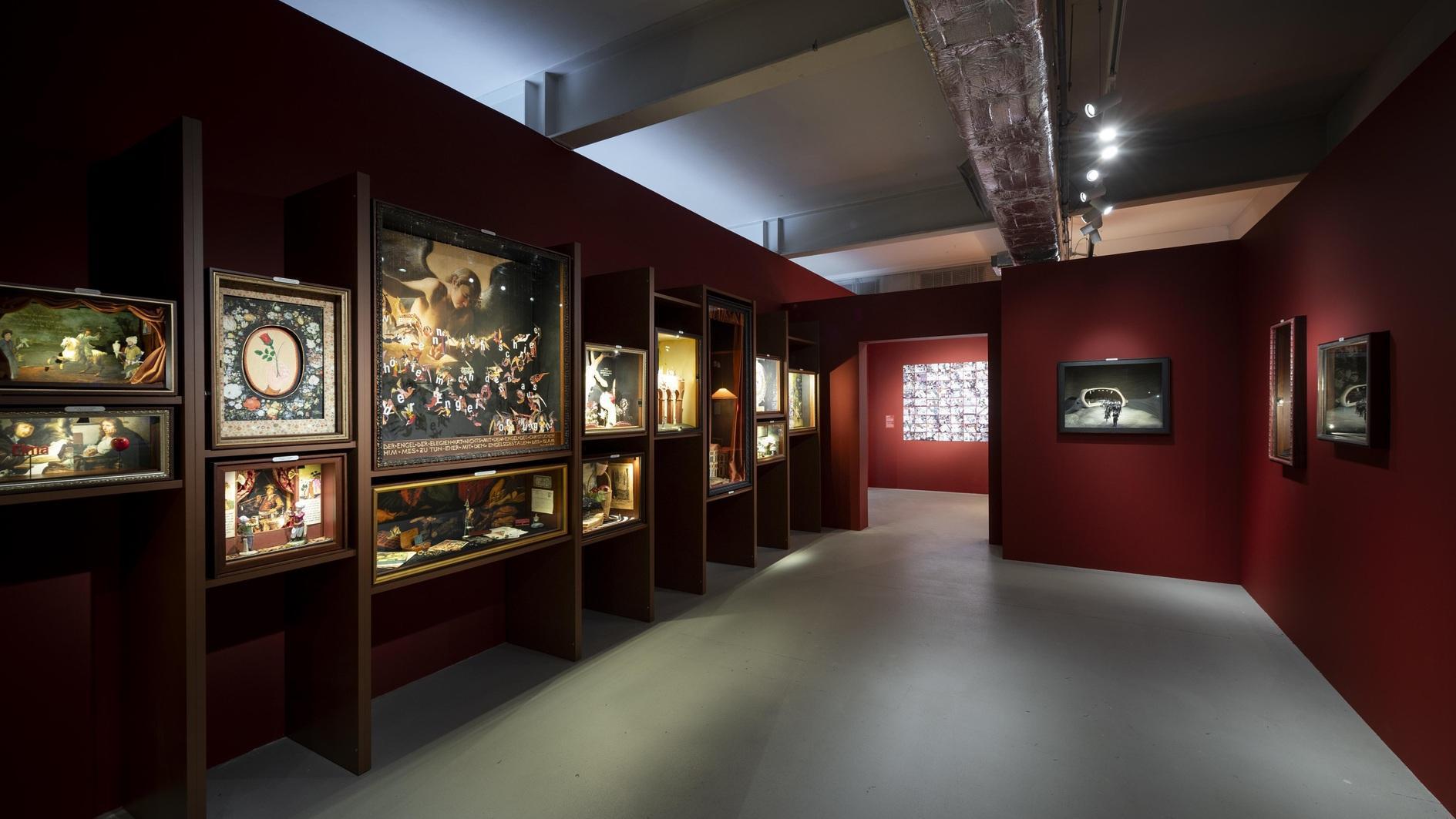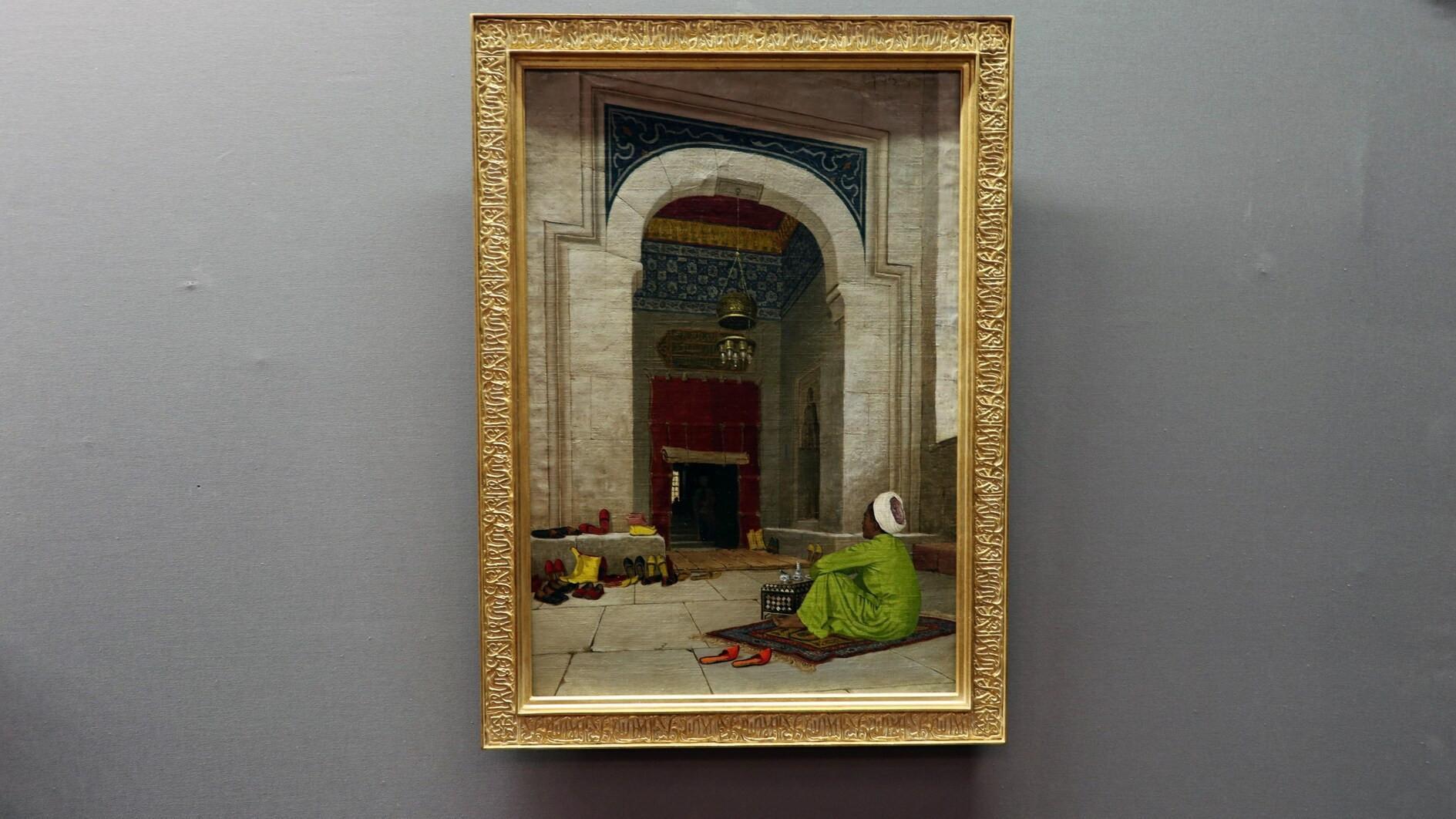Museum aims to raise awareness of insects
İZMİR - Anatolia News Agency

Some 99.9 percent of the insects in the museum have been collected from Turkey, and some from the the other countries. AA Photo
Providing an invaluable source of knowledge about Turkey’s entomological richness, a museum in İzmir has become a national leader for scientific study on insects but aims to raise more awareness of about the creatures in an increasingly urbanized society.“The [Professor Dr. Niyazi Lodos Insect Entomology] Museum is a significant source for researchers working in the field of entomology,” said Professor Serdar Tezcan, an official working at them museum, which is a joint project between Ege University, the European Union and the Scientific and Technological Research Council of Turkey (TÜBİTAK).
Tezcan said they had been implementing the TUBİTAK-supported Insect School Project (BÖFYAP) since 2007 and providing information to children between the ages 9 and 13 about insects.
“With urbanization, the new generation has grown up away from insects. People do not know about insects. Those living in cities are afraid of insects and think they are disgusting. Our collection is very important in order to overcome these feelings. We use this place as a classroom at the same time. We give instruction on insect awareness to children. We have so far had 500 students,” Tezcan said.
“TUBİTAK has been supporting such projects since the 1970s in order to reveal Turkey’s fauna. Thanks to these supports, we have a rich collection consisting of over 6,000 insects in 13 different types that have been collected from Turkey’s seven regions,” he said, adding that the number was increasing each day thanks to new research.
“Some 99.9 percent of the insects have been collected from Turkey, and some of the others are from Africa, Australia, South Asia and Europe. There are more than 250 types of insects that have been recently discovered. They have been given a name and introduced to the scientific world. The samples of these museums are being preserved in the museum,” Tezcan said, adding that the museum was the richest of its kind in Turkey.
A treasure chest
Tezcan said the museum was like a treasure chest and an important reference center.
“The types of some insects, which are not exactly known, can be determined here in the museum.
Information like their areas in Turkish regions can be provided within a short time. Students, amateurs and nature lovers visit our museum from time to time,” the professor said. “This rich treasure, which reflects an important part of Turkey’s fauna and is one of the doors opening Ege University to the world, can be kept alive with regular maintenance and the cleaning of materials.” He also said some of the insects in the museum had become the subject of stamps, adding that Turkey’s national postal service, the Post and Telegraph Organization (PTT), prepared 26 stamps featuring insects.
“These stamps have been used in post services and also sold to collectors,” Tezcan said.
















